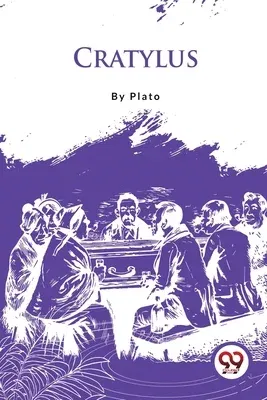Plato's conversation is known as Cratylus (Ancient Greek: Kratylos). In
it, Socrates is questioned about whether names are ""conventional"" or
""natural,"" or if language is merely a set of random signals, or if
words have an essential connection to the things they symbolize. The
majority of contemporary academics concur that it was mostly composed
during Plato's supposedly middle era. As an artist employs color to
convey the core of his topic in a painting, Socrates compares the
production of a word to the labor of an artist in Cratylus. The best way
to talk is to use names that are similar to the things they name (that
is, names that are appropriate for them), and the worst way to speak is
to use names that are not like the things they name. According to one
theory, names have developed owing to tradition and convention, thus
individuals who use them can replace them with something unrelated. The
opposite approach holds that names come about because they express the
essence of their topic. Many of the terms that Socrates gives as
examples may have originated from a concept that was formerly associated
with the name, but they have since evolved.


